
An ability to accurately mark the fall of game is a real asset for any breed of gundog that is to be used as a retriever in the shooting field. For testing and trialling dogs, it will be essential if you aim to win awards.
This article is going to be steered towards those of us that shoot over dogs and then immediately send them for the retrieve. So although there will be exceptions, it’s primarily about spaniels and pointers.
As our start point, it’s probably best if we establish what we would like the dog to do when we shoot over him! Firstly, when instructed, we need a dog that hunts and locates the quarry we are looking for and, while doing so, ignores all other wildlife and livestock. Upon contact with game, the spaniel needs to instantly force game to ‘flush’, to take flight, stopping immediately when this is achieved, ‘sitting to the flush’. Assuming the shooting is successful the dog should mark its fall and, once instructed, go straight to the game and retrieve it quietly and efficiently. With the pointers, we add the addition of ‘the point’, before flushing on command.
This series of intricate behaviours that we require from the dog are often taught as individual elements during early training before being brought together in a top flight shooting dog.
As with many of the skills that our gundogs bring to the shooting field, these need to be learned. And of course the job that falls to us is to teach them to do it. This can be started right from the beginnings of training and will continue on into advanced field work.
Denne historien er fra March 2020-utgaven av Sporting Shooter.
Start din 7-dagers gratis prøveperiode på Magzter GOLD for å få tilgang til tusenvis av utvalgte premiumhistorier og 9000+ magasiner og aviser.
Allerede abonnent ? Logg på
Denne historien er fra March 2020-utgaven av Sporting Shooter.
Start din 7-dagers gratis prøveperiode på Magzter GOLD for å få tilgang til tusenvis av utvalgte premiumhistorier og 9000+ magasiner og aviser.
Allerede abonnent? Logg på
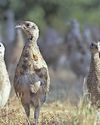
RSPB gives mixed message on shooting
Having recently attended the RSPB’s virtual AGM, Conor O’Gorman discusses the outcome of the charity’s year-long review of game bird shooting

Causeway for concern
Alan Jarrett’s renewed interest in reading takes him down memory lane to an offshore island duck flight that very nearly ended in disaster

Through a purple patch
The Garrows Estate is taking a conservation-focused approach to restoring the wildlife populations and biodiversity on the Scottish heather moorland.
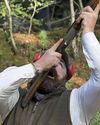
When the wheels fall off
Losing form on a day’s shooting can be infuriating, especially if you’ve been shooting like a god up to that point. Simon O’Leary looks at some common causes and how to remedy them
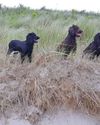
Beaches, books & bad behaviour!
The annual Kay family vacation to Northumberland offers a chance to give the cockers a blast on the beach – although they don’t always shower themselves in glory, as Ryan Kay recalls...
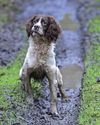
Using the Stop whistle
Now you’ve instilled the basics, it’s time to up the ante with some more tricky distance work. Howard Kirby explains how to take the core Stop whistle command to the next level
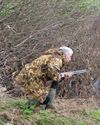
The humble teal
They may be tiny, but as far as Rupert Butler is concerned, the appeal of this little duck is huge. He recalls some of his most memorable nights in pursuit of these aerial acrobats
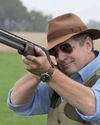
Fab all-rounder
Mike is impressed with the Fabarm Elos B2 Field Notte, which offers great value for money, is suited to fieldwork or clays and is future-proofed for use with steel in all choke constrictions

CALL OF THE WILD
Dom Holtam reconnects with one of the purest forms of shotgun shooting as he walks-up woodcock over pointing dogs in the Scottish Highlands
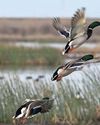
A yen for the Fens
Tony Jackson recounts a memorable duck flight over an area of Fenland in Norfolk with his friend and author, the late Alan Savory